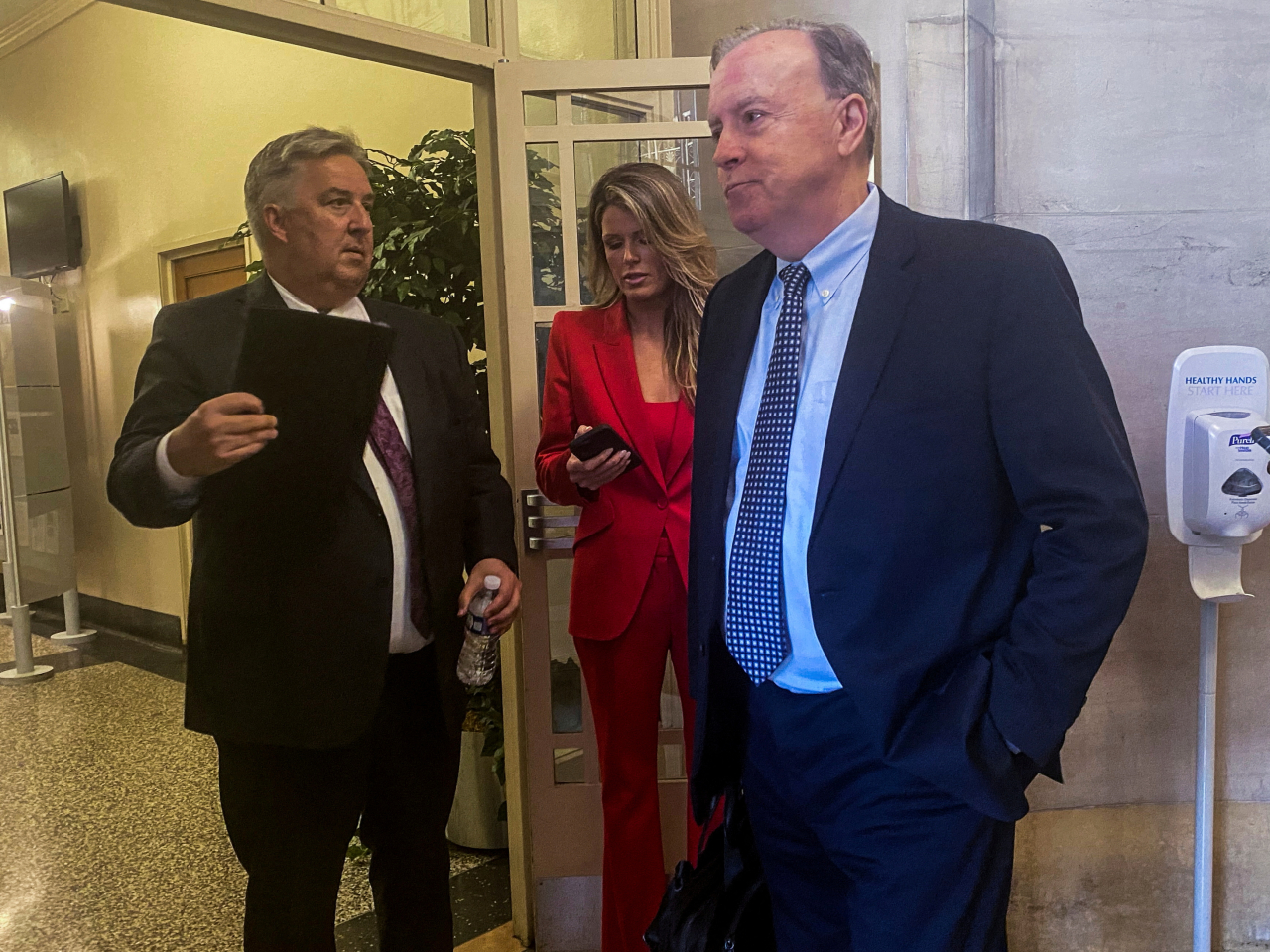The US Justice Department engaged in a “disturbing pattern of profound investigative missteps” in the process of securing an indictment against former FBI director James Comey, a federal judge has ruled in directing prosecutors to provide defence lawyers with all grand jury materials from the case.
Those problems, wrote Magistrate Judge William Fitzpatrick on Monday, include “fundamental misstatements of the law” by a prosecutor to the grand jury that indicted Comey in September, the use of potentially privileged communications during the investigation and unexplained irregularities in the transcript of the grand jury proceedings.
“The Court recognizes that the relief sought by the defense is rarely granted,” Fitzpatrick wrote. “However, the record points to a disturbing pattern of profound investigative missteps, missteps that led an FBI agent and a prosecutor to potentially undermine the integrity of the grand jury proceeding.”
The 24-page opinion is the most blistering assessment yet by a judge of the Justice Department's actions leading up to the Comey indictment. It underscores how procedural missteps and prosecutorial inexperience have combined to imperil the prosecution pushed by President Donald Trump for reasons separate and apart from the substance of the disputed allegations against Comey.
The Comey case and a separate prosecution of New York Attorney General Letitia James have fuelled concerns that the department is being weaponised in pursuit of Trump's political opponents. Both defendants have filed multiple motions to dismiss the cases against them before trial, arguing that the prosecutions are improperly vindictive and that the prosecutor who filed the charges, Lindsey Halligan, was illegally appointed.
Though grand jury proceedings are presumptively secret, Comey’s lawyers had sought records from the process out of concern that irregularities may have tainted the case.
The sole prosecutor whose defence lawyers say presented the case to the grand jury was Halligan, a former White House aide with no prior prosecutorial experience who was appointed just days before the indictment to the job of interim US attorney for the Eastern District of Virginia.
In his order on Monday, Fitzpatrick said that after reviewing the grand jury transcript himself, he had come away deeply concerned about the integrity of the case.
“Here, the procedural and substantive irregularities that occurred before the grand jury, and the manner in which evidence presented to the grand jury was collected and used, may rise to the level of government misconduct resulting in prejudice to Mr Comey,” the judge said.
The Justice Department responded to the ruling by asking that it be put on hold to give prosecutors time to file objections.
Fitzpatrick's order ticked off nearly a dozen irregularities in the case that he said alarmed him.
They include two different comments that a prosecutor – presumably Halligan – made to the grand jury that he said represented “fundamental misstatements of the law.”
The actual statements are blacked out, but Fitzpatrick said the prosecutor seems to have ignored the fact that a grand jury may not draw a negative inference about a person who exercises his right not to testify in front of it. Comey did not appear before the panel.
The judge said Halligan also appeared to suggest to grand jurors that they did not need to rely only on what was presented to them and could instead be assured that there was additional evidence that would be presented at trial.
Fitzpatrick also drew attention to the jumbled manner in which the indictment was obtained and indicated that a transcript and recording of the proceedings do not provide a full account of what occurred.
Halligan initially sought a three-count indictment of Comey, but after the grand jury rejected one of the three proposed counts and found probable cause to indict on the other two counts, a second two-count indictment was prepared and signed. But Fitzpatrick said a transcript and recording of the proceedings “do not reflect any further communications after the grand jury began deliberating on the first indictment,” creating what he said were unanswered questions about whether the record is complete.
“Either way, this unusual series of events, still not fully explained by the prosecutor’s declaration, calls into question the presumption of regularity generally associated with grand jury proceedings, and provides another genuine issue the defense may raise to challenge the manner in which the government obtained the indictment,” he wrote.
The two-count indictment charges Comey with lying to Congress in September 2020 when he suggested under questioning that he had not authorised FBI disclosure of information to the news media. His lawyers say the question he was responding to was vague and confusing but that the answer he gave to the Senate Judiciary Committee was literally true.
The line of questioning from Senator Ted Cruz appeared to focus on whether Comey had authorised his former deputy director, Andrew McCabe, to speak with the news media. But since the indictment, prosecutors have made clear that their indictment centres on allegations that Comey permitted a separate person — a close friend and Columbia University law professor, Dan Richman — to serve as an anonymous source in interactions with reporters.
The FBI executed search warrants in 2019 and 2020 to access messages between Richman and Comey as part of a media leaks investigation that did not result in charges.
But Fitzpatrick said he was concerned that communications between the men that might have been protected by attorney-client privilege – Richman has at times been a lawyer for Comey – were exposed to the grand jury without Comey having had an opportunity to object. An FBI agent exposed to potentially privileged communications appeared before the grand jury.
“The government’s decision to allow an agent who was exposed to potentially privileged information to testify before a grand jury is highly irregular and a radical departure from past DOJ practice,” Fitzpatrick wrote. (AP)





